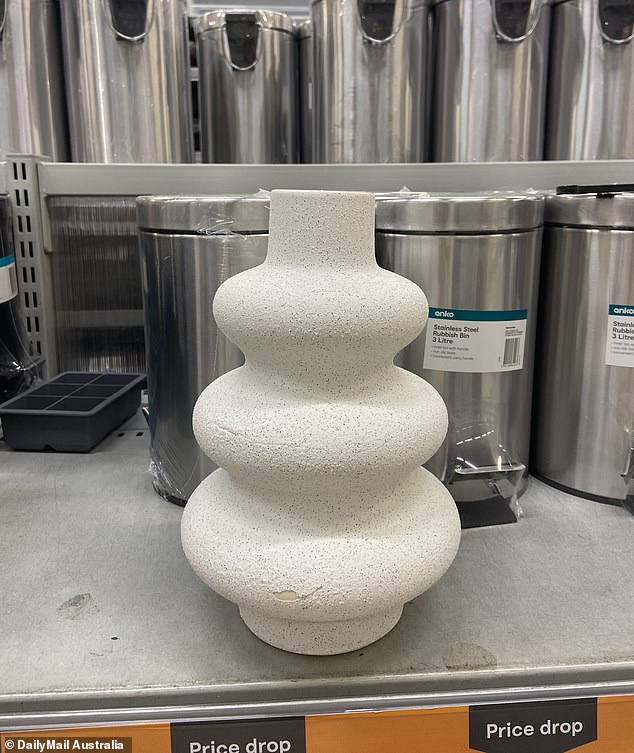A regular online shopper has revealed the clever way she avoids impulsive spending.
Browsing retailers’ websites can quickly turn into expensive purchases of products that shoppers typically don’t need.
This was the case for one TikTok shopper who found it all too easy to add products to her cart when her card details were saved on her phone or laptop – transactions were just a click away.
So she’s deleted the permanently saved information from her browser and saved herself a fortune. How? Either she’s too “lazy” to find the card or she has plenty of time to reconsider the purchase while looking for it.
Simran Kaur, a New Zealand financial expert and founder of the Girls That Invest podcast, praised the tip and agreed that it can help save money because “it’s all about convenience.”
“When your card details are stored, it’s very easy to make impulse purchases because it’s just so easy. Just a few taps and boom! You’ve spent money!” Simran told FEMAIL.
‘If you didn’t save your card, you might want to reconsider taking a few seconds to enter your card information manually each time. This way, you create a pause, a moment to reconsider whether you really need that item. In this case, your laziness is a win!
‘This little trick can help you reduce unnecessary expenses and make more conscious decisions.’
Online transactions are just a click away when your credit card details are saved on your phone or laptop. A woman on TikTok deleted the saved information for good, and the laziness of not wanting to get up to look for the card has saved her thousands of dollars (file image)

Simran Kaur (pictured), a New Zealand financial expert and founder of the Girls That Invest podcast, praised the tip and agreed that it can help you save money because “it’s all about convenience”.
Simran also revealed other ways to break bad spending habits, including unsubscribing from marketing emails.
“Those ‘SALE!’ emails are designed to tempt you, and if you don’t see them, you don’t remember them. Delete shopping apps from your phone – if you don’t see the app, you’re less likely to browse out of boredom,” she said.
Simran also suggested setting a shopping schedule and allowing yourself to shop online only once a month. This will help you plan and prioritize what you need.
“Finally, use the 48-hour rule and wait 48 hours before making any online purchases. Often, the urge to buy will pass,” she added.
The money-saving tactic of deleting stored credit card details was praised by hundreds of people online and encouraged many to do the same.
“I was thinking of doing this yesterday because I know I’d be too lazy to get up and look for the card too,” one agreed.
“It’s convenient with all cards, but when I use cash I see the money and feel a real exchange, thinking twice before spending,” said another.
“It’s me. I don’t keep a credit card anywhere and when I get one out to pay I wonder if I need it,” wrote a third.
“As a mortgage broker, this is the number one excuse I hear from people using buy now pay later services,” another person said.
Another added: “It helps me too. It breaks the pattern of mindless spending.”

The money-saving tactic of deleting your saved credit card details was praised by hundreds of people online and encouraged many to do the same (stock image)
Another person who worked at a bank said he never saves his personal information online because “fraud is everywhere.”
But others said that even if they deleted their credit card details, the trick wouldn’t work because they have the numbers memorized.
Another woman said she canceled her credit card entirely and that it made “a huge difference” to her finances.
Last year, another shopper was praised for sharing her clever way to avoid buying products she doesn’t need.
Morgan Smith, an American home decor fanatic, found that whenever she went shopping she was “overwhelmed” by the colors and gorgeous displays and often bought much more than she planned.

It turns out that decorative elements look much less attractive without aesthetically pleasing elements around them.
So to make sure she doesn’t spend money unnecessarily, she uses the “trash can” trick, or as she likes to call it, “taking it to the trash.”
After seeing a product she likes, Morgan takes it off the display and into the bin aisle to see how it looks. It turns out that decor items look a lot less appealing without aesthetically pleasing elements around them.
“If I like something in the trash can aisle, I’ll buy it because I know it will look nice anywhere,” she said in a video.
“I would get so frustrated when I would pull out my holiday storage bins and not like some decor that was only a year or two old,” Morgan wrote on Instagram.
“I had to stop buying on impulse. Honestly, it was wasteful, so I started ‘taking it to the trash’. I definitely recommend it.”
In the video, Morgan visited his local Target and demonstrated the theory by bringing different products to the trash aisle.


